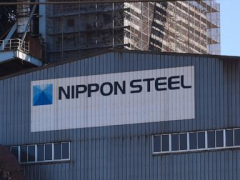WASHINGTON — A powerful government panel on Monday failed to reach consensus on the possible national security risks of a nearly $15 billion proposed deal for Nippon Steel of Japan to purchase U.S. Steel, leaving the decision to President Joe Biden, who opposes the deal.
The Committee on Foreign Investment in the United States, known as CFIUS, sent its long-awaited report on the merger to Biden, who formally came out against the deal in March. He has 15 days to reach a final decision, the White House said. A U.S. official familiar with the matter, speaking on condition of anonymity to discuss the private report, said some federal agencies represented on the panel were skeptical that allowing a Japanese company to buy an American-owned steelmaker would create national security risks.
Monday was the deadline to approve the deal, recommend that Biden block it or extend the review process.
Both Biden and President-elect Donald Trump have courted unionized workers at U.S. Steel and vowed to block the acquisition amid concerns about foreign ownership of a flagship American company. The economic risk, however, is giving up Nippon Steel’s potential investments in the mills and upgrades that might help preserve steel production within the United States.
Under the terms of the proposed $14.9 billion all-cash deal, U.S. Steel would keep its name and its headquarters in Pittsburgh, where it was founded in 1901 by J.P. Morgan and Andrew Carnegie. It would become a subsidiary of Nippon Steel, and the combined company would be among the top three steelmakers in the world, according to 2023 figures from the World Steel Association.
Biden, backed by the United Steelworkers, said earlier this year that it was “vital for (U.S. Steel) to remain an American steel company that is domestically owned and operated.”
Trump has also opposed the acquisition and vowed earlier this month on his Truth Social platform to “block this deal from happening.” He proposed reviving U.S. Steel’s flagging fortunes “through a series of Tax Incentives and Tariffs.”
The steelworkers union questions if Nippon Steel would keep jobs at unionized plants, make good on collectively bargained benefits or protect American steel production from cheap foreign imports.
“Our union has been calling for strict go





